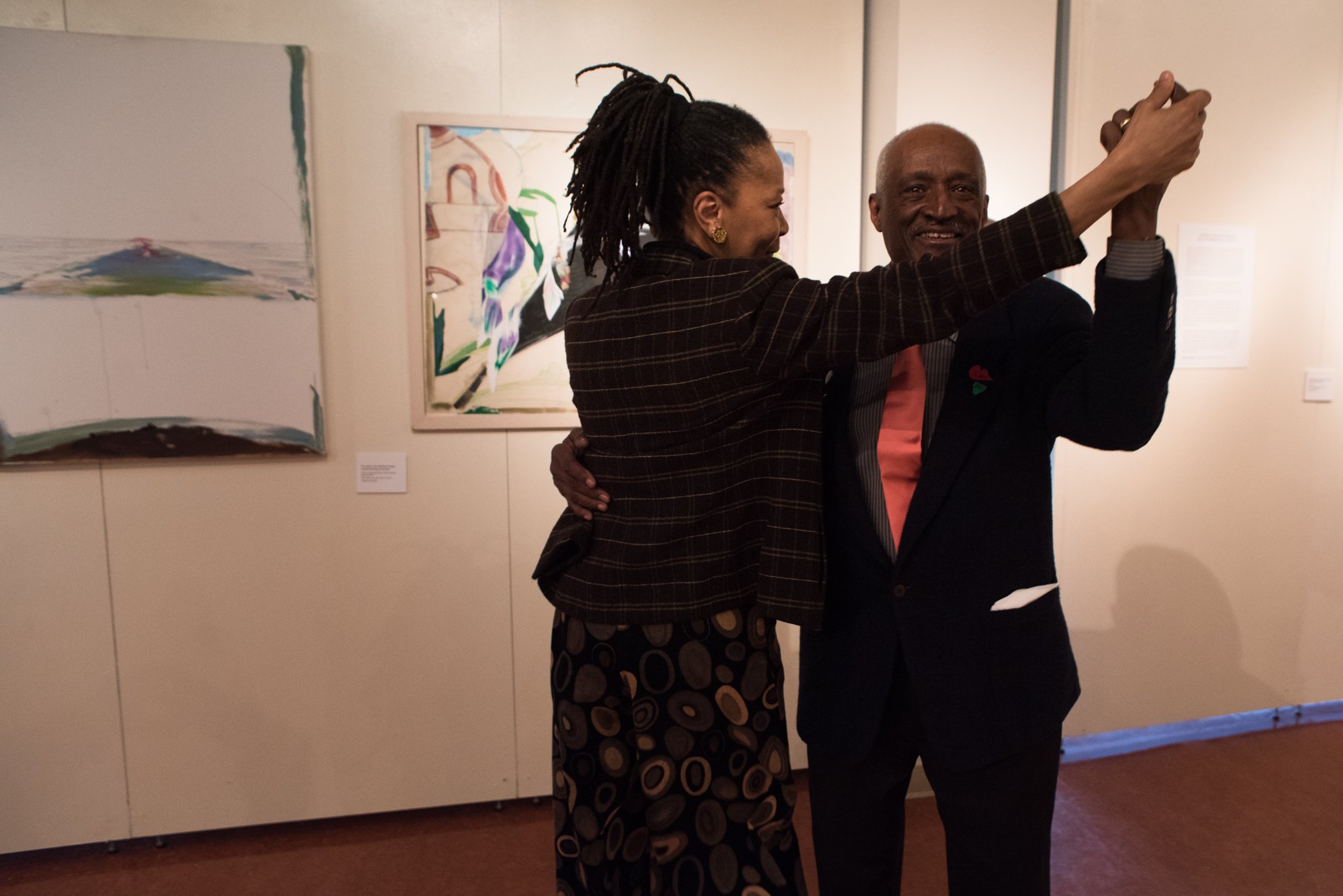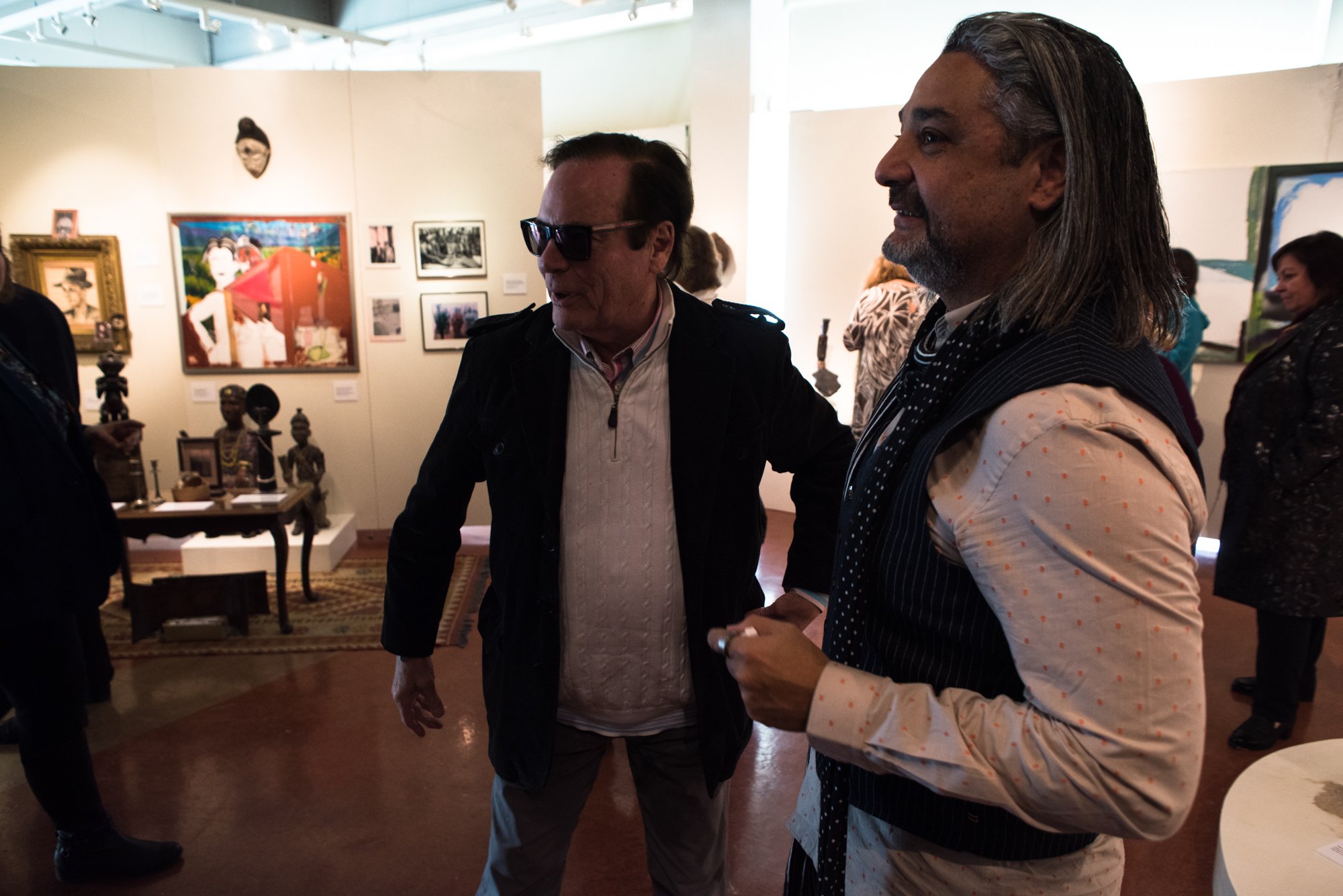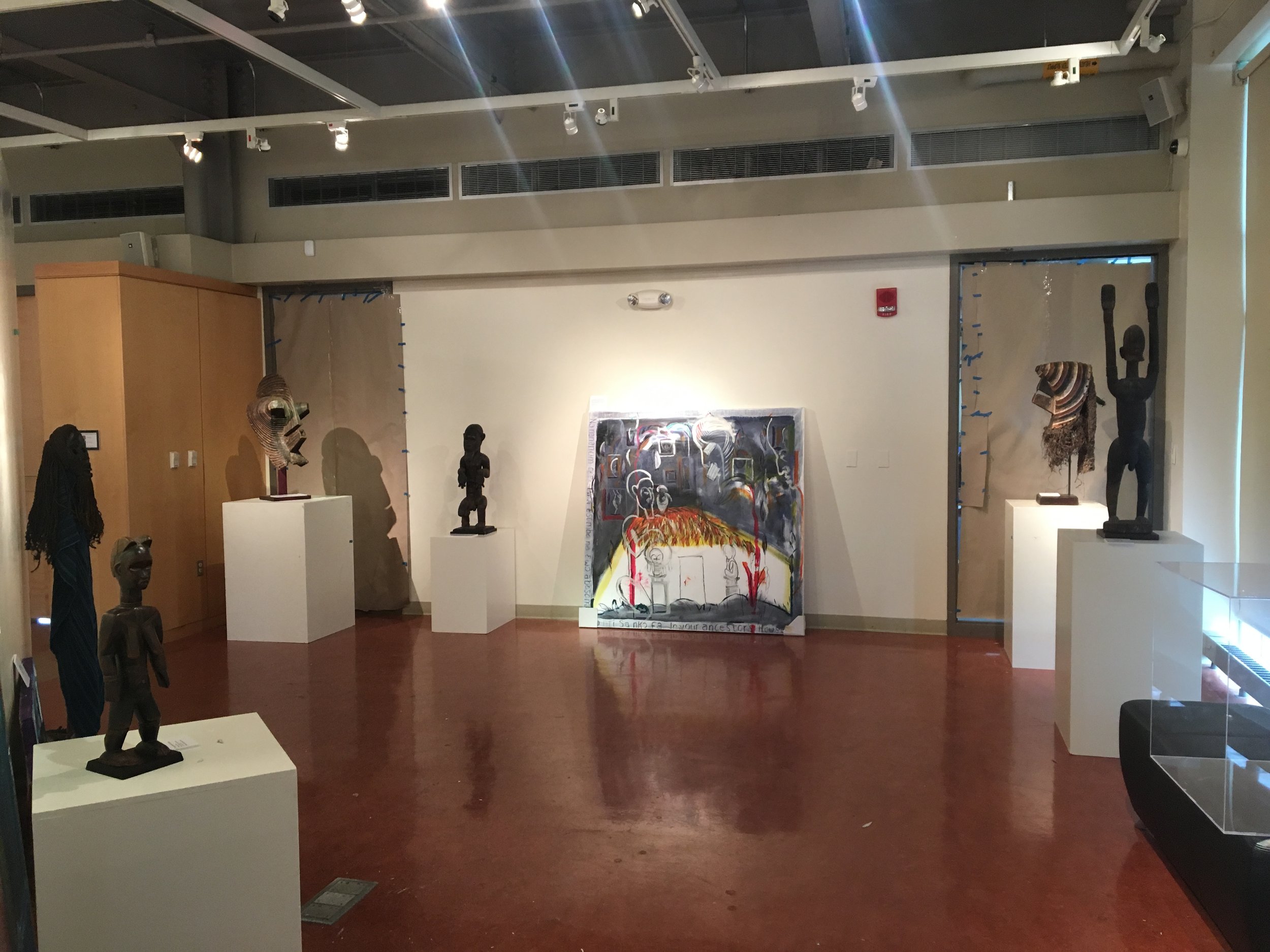The Creative and Spiritual World of George Nelson Preston
The Carl and Helen Burger Gallery at Kean University
Artist, scholar, writer, critic, collector, professor, world-traveler, baseball enthusiast, inventor, poet of the Beat Generation and an honored Akan chief in Ghana— George Nelson Preston is a renaissance man, a cultural visionary with a unique outlook on the world as he has lived it. Preston’s life work embodies a perspective that could only evolve within his moment in time, his unique experiences, and above all a relentless insistence on historic reality vs. a sanitized narrative of chronological events. When you meet George, you are confronted with the existential question of how the present has been shaped by the past.
Born in New York City in 1938, George Preston grew up in an art and music family in Harlem. He had the opportunity to attend the High School of Music and Art, and earned his Bachelor of Arts from The City College of New York. In 1960/61 he visited Cuba as a freelance writer and interviewed Pablo Neruda and other cultural and political dignitaries. This was the beginning of his countless travels outside of North America to Europe, South America, and Africa. In 1966, George Nelson Preston entered the Program in Primitive and Pre-Columbian Art in the Department of Art History and Archeology, at Columbia University where he later earned his Masters and Doctorate degrees.
To uncover the impact of Africa, Preston has invented the aquatic continent of Afro-Atlantica, the shores of which are washed by the waters of Africa, the Americas, and Europe starting with the arrival of the Portuguese in Brazil in 1500. This is not a romantic notion, but instead a way of explaining the painful birth of modern cultures that continue to flourish in spite of the ongoing struggle for identity, freeing centuries of European destruction, colonization, and genocide.
George Preston is the founder of the Museum of Art & Origins, located on 162ndStreet in New York City . Dedicated to his ancestors, the museum collections are housed in a large classic Manhattan brownstone. Hundreds of African artworks are interspersed with personal ephemera, George’s artworks, antique family photographs, and works by other contemporary artists. In several places, the museum environment has evolved into layers of art, starting with a drawing directly on the wall with paintings and sculptures working together in harmony. Preston asks the viewer:
"What if I could give visual cues to the experience of the painting as layers of consciousness beyond the image and between the consciousness of the viewer and the consciousness of the painting?"
This unique installation at the Karl and Helen Burger Gallery presents George’s artwork with this in mind. The exhibition is but a vignette, of his artwork, collection, and philosophy of life presented together. Everything in the gallery is interconnected and relates in some way to the past, the present, and the future.







